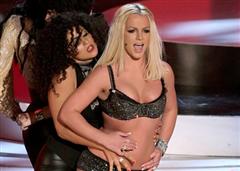 Bruce Springsteen’s “Magic” has been winning fans and critics alike in its initial weeks of release. Some are liking it for its inspiration. Some are wowed by his maturity. Some just love a grittier sound that’s closer to classic rock than today’s clutter. Some love the 70’s-ish hooks or the 80’s-ish alternative riffs. And some just love that Bruce is still making music, and/or that he’s reunited with his E-Street Band mates. I like it for a combination of those reasons with a twist.
Bruce Springsteen’s “Magic” has been winning fans and critics alike in its initial weeks of release. Some are liking it for its inspiration. Some are wowed by his maturity. Some just love a grittier sound that’s closer to classic rock than today’s clutter. Some love the 70’s-ish hooks or the 80’s-ish alternative riffs. And some just love that Bruce is still making music, and/or that he’s reunited with his E-Street Band mates. I like it for a combination of those reasons with a twist.
I think one of the most enduring potential inspirational qualities anyone can have is endurance. We live in a fast-moving world of instant gratification, quick results, immediate nostalgia and thin loyalties. People don’t work for companies for 40 years any more. We don’t tune into the same channel each week at the same time. We don’t have a favorite radio station, because we’ve created our own radio with our mp3 player. Outside of those who love ESPN or the Discovery Channel, few people could name a favorite TV station.
But Bruce Springsteen shows in his current album that, while he and his E Street Band may be older, they are still making rock songs with lyrics that matter and appealing to long-time fans who stick with them while winning new ones from the younger generations. They haven’t had to pair with younger talents or do commercial soundtracks to stay relevant.
Several of the tracks on “Magic” could easily fit musically on one of his 70’s or 80’s albums, especially “Born to Run,” “Born in the U.S.A.” or “Tunnel of Love,” though his lyrics aren’t about Jersey girls and union jobs anymore. Instead, he’s singing about everything from love to war to death to faith, in a way that blends a sound people love with some questions not easily solved. Hopefully, though, people are asking, and the charts (#1 or #2 each week since its release) and reviews would seem to render that a “yes:”
“Magic is, in one way, the most openly nostalgic record Springsteen has ever made,” wrote David Fricke of Rolling Stone. “But Springsteen’s songwriting here is also intricately wired with outrage and disbelief.”
Mark Seleski noted on BlogCriticsthat on “’Girls In Their Summer Clothes,’ I’ve never heard Bruce sing like this before.”
Of all the reviews, I agreed with the L.A. Times the most. “The wild-eyed innocence may be gone, but the new album rocks like classic Bruce Springsteen & the E Street Band,” wrote Ann Powers. “His lyrics blend religious and secular scenarios to describe the various apocalypses his fans might encounter in their own lives.”
“It’s the way Springsteen injects his American bible stories with the air of disbelief that makes “Magic” a truly mature and memorable album,” she added. “He knows his fans need that rush, that jump outside their own feelings of disappointment and limitation, that he’s given them for so long, yet more and more he seems to realize that disappointment and limitation are his métier…(“Magic”) provides a kind of transcendence that allows for listeners to keep their feet on the ground.”
These tunes are good enough that you’ll actually want Bruce to play ‘em live (even sacrificing a few of the old standards!), especially rockers “Radio Nowhere,” “Last To Die” and “Long Walk Home.” And you’ll have your candles–err, cell phones–lit during “Magic,” a title track that is even prettier and deeper than the likes of “My Hometown” and “I”m on Fire.” And, perhaps even then, you’ll be pondering some of the questions that Bruce continues to ask, with his enduring attractiveness that says “Magic” won’t be the E-Street Band’s last effort.


